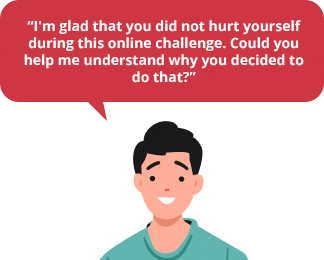How can I keep my child safe from online challenges and hoaxes?
Online challenges and hoaxes are often circulated via social media.
Online challenges usually involve people recording themselves doing something and daring others to do the same.
Hoaxes are challenges that trick people into believing something that is not true, sometimes causing fear and panic (e.g. Momo Challenge).
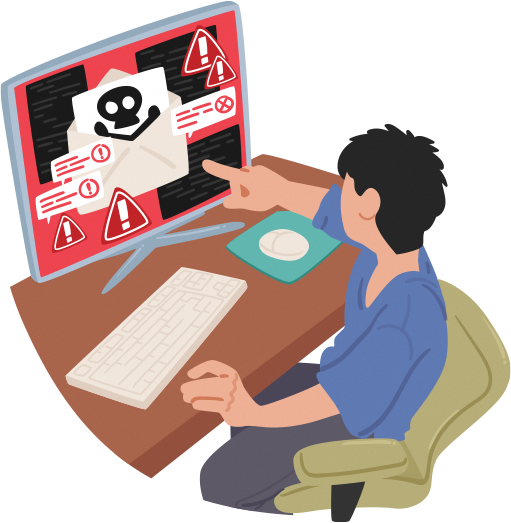
Both online challenges and hoaxes appeal to children and youths as they provide participants and viewers a shared bonding experience. While some of these challenges may seem fun and are for a good cause (e.g. Ice Bucket Challenge), others may endanger your child (e.g. Skull Breaker Challenge).

To ensure your child’s safety, discuss with them the advantages and potential risks involved when participating in an online challenge and guide them to make an informed and responsible decision about their participation.
Engaging in conversations about online challenges can be a confusing experience, especially if you know little about it.
Here are some ways you can find out more about trending online challenges, as well as your child’s thoughts and feelings towards them:
Read up and stay informed of trends happening online. You can also ask your child to share about trending online challenges.
For example you can say:
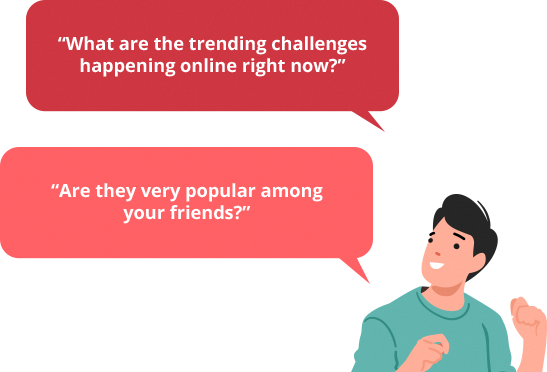

Get your child to think about the benefits and risks of participating in online challenges using Stop-Think-Do. When they encounter an online challenge, get them to:
Stop what they are about to do.
For example, you can say:
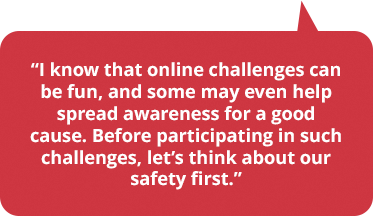
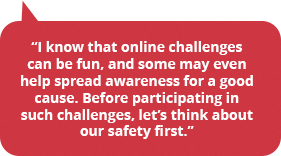
Think of the different choices they have and the consequences of each choice for themselves and others.
For example, you can say:
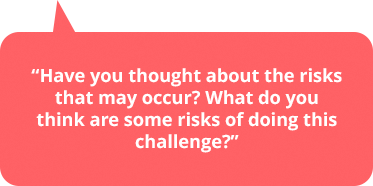
Do the most responsible action for themselves and others. Encourage them to talk to you or a trusted adult for support if necessary.
Get your child involved in writing out a set of rules and expectations for the family’s participation in various types of online challenges, as well as the consequences for not being able to follow the rules.
For example you can say:
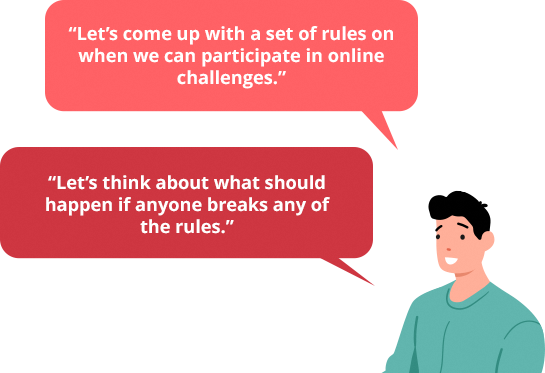

If you find out that your child has participated in a dangerous online challenge, stay calm. Show care and concern first before finding out the reason for their decision to take on the online challenge.
During the conversation, avoid punishing them immediately. Instead, let them know that you will support and guide them in working out a solution if they encounter the same problem again.
For example, you can say:

